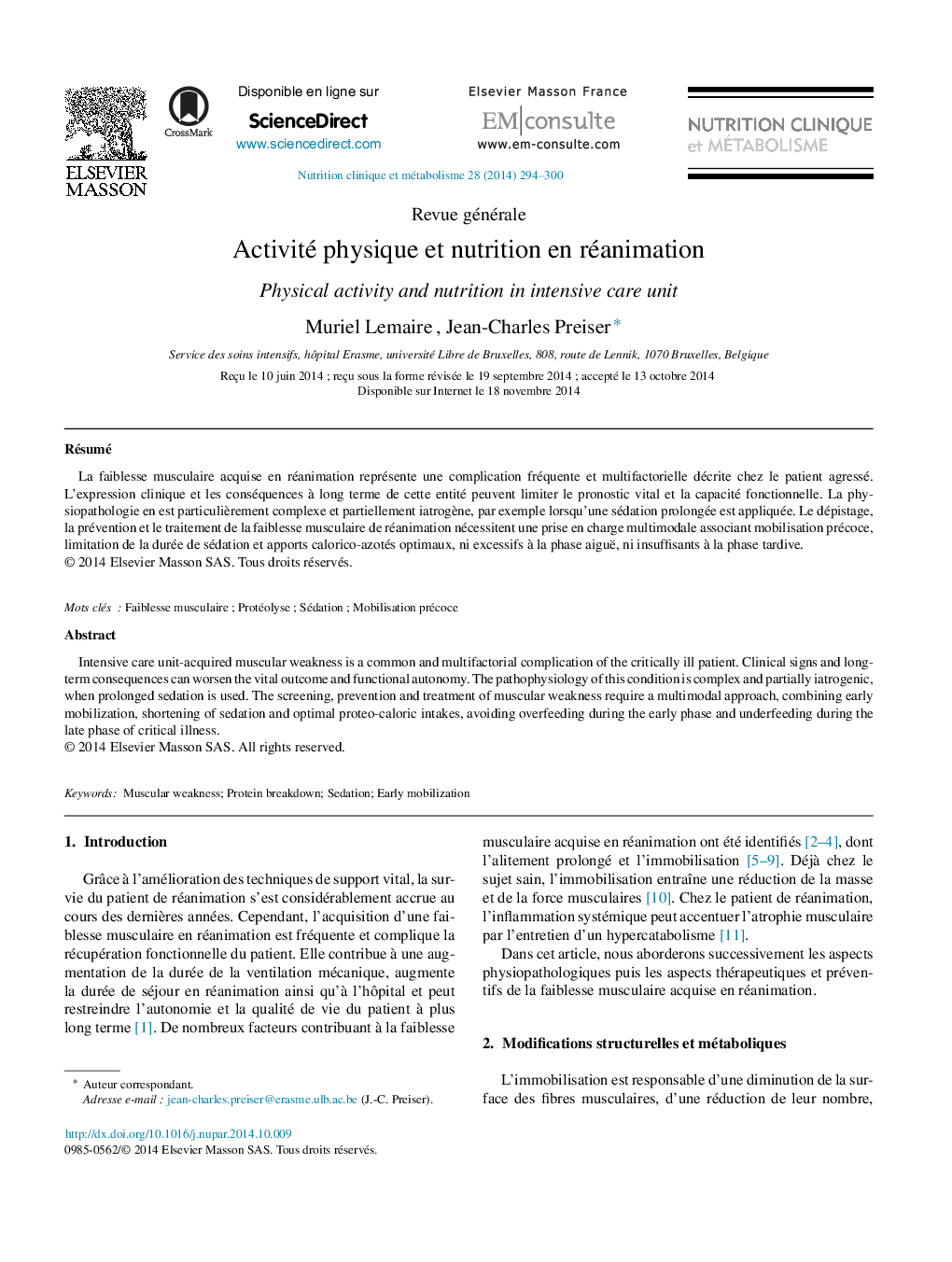| Article ID | Journal | Published Year | Pages | File Type |
|---|---|---|---|---|
| 2693776 | Nutrition Clinique et Métabolisme | 2014 | 7 Pages |
RésuméLa faiblesse musculaire acquise en réanimation représente une complication fréquente et multifactorielle décrite chez le patient agressé. L’expression clinique et les conséquences à long terme de cette entité peuvent limiter le pronostic vital et la capacité fonctionnelle. La physiopathologie en est particulièrement complexe et partiellement iatrogène, par exemple lorsqu’une sédation prolongée est appliquée. Le dépistage, la prévention et le traitement de la faiblesse musculaire de réanimation nécessitent une prise en charge multimodale associant mobilisation précoce, limitation de la durée de sédation et apports calorico-azotés optimaux, ni excessifs à la phase aiguë, ni insuffisants à la phase tardive.
Intensive care unit-acquired muscular weakness is a common and multifactorial complication of the critically ill patient. Clinical signs and long-term consequences can worsen the vital outcome and functional autonomy. The pathophysiology of this condition is complex and partially iatrogenic, when prolonged sedation is used. The screening, prevention and treatment of muscular weakness require a multimodal approach, combining early mobilization, shortening of sedation and optimal proteo-caloric intakes, avoiding overfeeding during the early phase and underfeeding during the late phase of critical illness.
